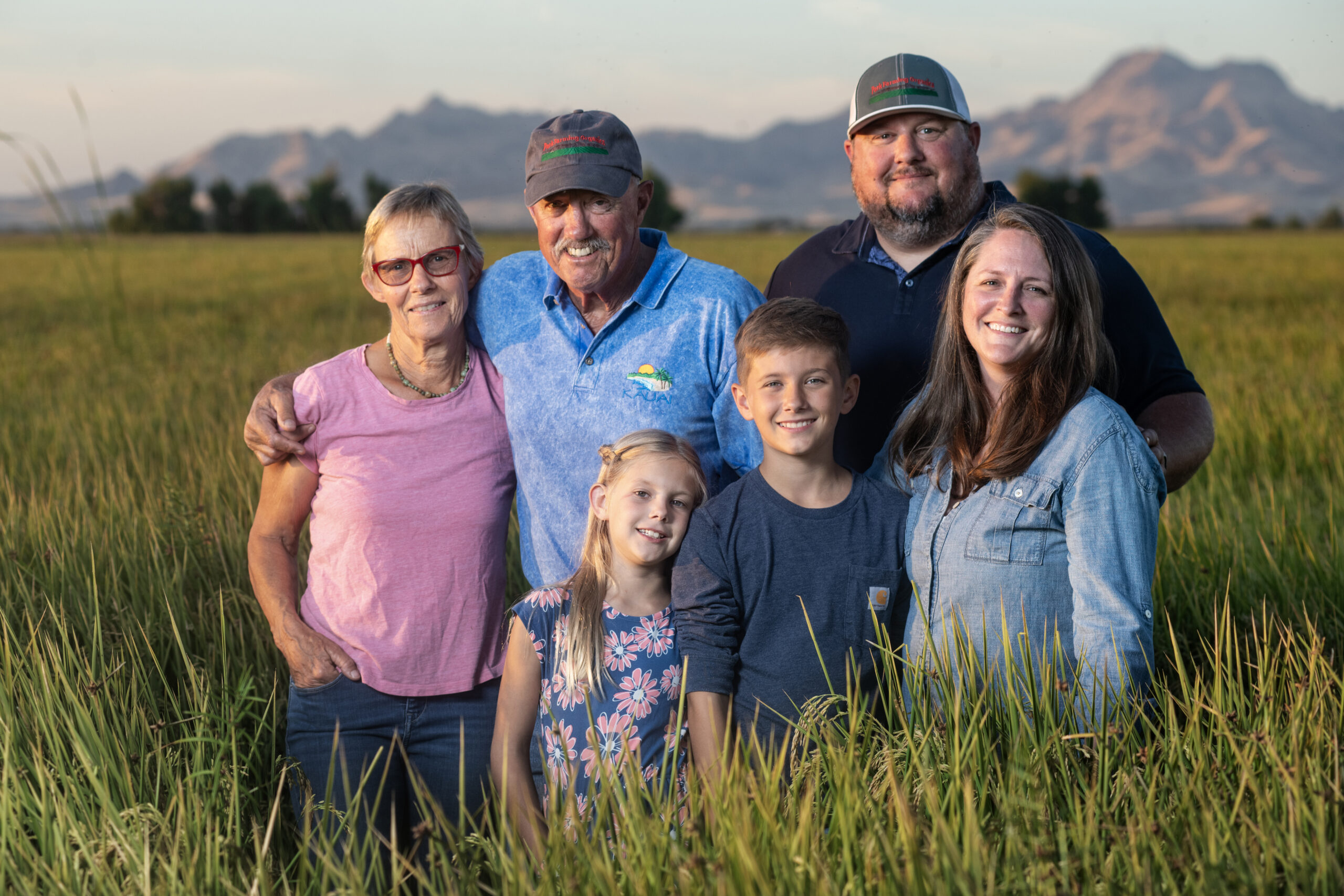
Photo: Paolo Vescia
The votes have been tallied, and thanks to our esteemed panel of judges, we’re pleased to announce that this year’s California Leopold Conservation Award recipient is Park Farming Organics.
Park Farming Organics’ owners, Brian and Jamie Park, and Scott and Ulla Park, were presented with the award during the California Farm Bureau Federation’s Annual Meeting in December. The Park family will receive $10,000 and a crystal award for being selected.
About the Parks
Scott and Ulla Park placed their bets on regenerative farming practices long before they were trending.
They spent the 1980s conventionally growing processing tomatoes before deciding to switch to organic production. Fueled by their love for agriculture and nature, coupled with a healthy dose of skepticism and common sense, they embarked on journey of exploration and discovery.
In their effort to mimic the natural world, the Parks chose gentler tillage methods, grew a variety of cover crops, and adopted a thoughtful rotation of crops. Their use of fertility inputs produced naturally balanced soils that help grow disease and pest-free plants. They noticed their once sterile soils became rich in earthworms and microbial life.
The Park’s farm, Park Farming Organics, grew to 1,350 acres, and is now run by their son Brian and his wife Jamie. What hasn’t changed is the family’s openness to experimentation and willingness to embrace new methods to adapt to changing consumer demands, market dynamics, environmental variability, and regulatory shifts.
Each year Park Farming Organics grows between 15-20 types of crops including rice, corn, wheat, sunflower, flax, alfalfa, barley, squash, cantaloupe, watermelons, cucumbers, and fresh market vegetables. It is governed by what the Parks call their “9 Cs of conservation”: critter cover, compost, controlled traffic, crop rotation, cover crops, conservation tillage, crop residue, conserving inputs, and crew care.
Their use of cover crops, compost applications, and crop residue annually returns an average of 15 tons of organic biomass per acre back to the soil. Growing sunn hemp as a cover crop helps improve soil properties, reduce soil erosion, conserve soil moisture, and recycle plant nutrients. The Parks’ unique border management of their fields includes growing diverse hedge rows that benefit wildlife and installing owl boxes to help control rodents.
Innovation and adaptability of farm equipment has been required to meet their production and conservation goals. Flotation tires on tractors help minimize compaction of rice fields. By modifying many core pieces of their farm equipment, the Parks have become leaders in developing specially adapted implements that other growers now rely on.
Exploring novel conservation practices has not been devoid of challenges and unexpected consequences. Scott and Brian participate in workshops, conferences, and fields days where they eloquently break down the challenges of organic and sustainable practices. Their expertise and willingness to share has made Park Farming Organics a go-to destination in northern California for students, scientists, journalists, and food sector professionals.
Collaborative partnerships with their local conservation district and universities have led to new innovations and provided regional context for adopting conservation practices. The impacts of their efforts to improve soil health are documented in a variety of peer-reviewed scientific journals. Promoting environmental stewardship among fellow farmers, educators, and environmental professionals is the purpose of the Parks’ involvement with the USDA Natural Resources Conservation Service’s Conservation Education and Awareness Center.
Park Farming Organics’ significant role in the regenerative agriculture scene is thanks to its owners’ ability to share their vision, values, accomplishments, and obstacles with farm and consumer audiences. Through dedication, passion, and the ability to put their ideas into practice, the Parks have trailblazed a path for other farmers to begin their conservation journeys.
“The Parks define innovation and perseverance in California’s private land stewardship. Caring for the soil, water, and air that nourish Park Farming Organics’ food crops is a full-time job. Brian, Jamie, Ulla and Scott go above and beyond that work with keen attention to how they’ll leave the land for future generations, how they can improve nutrition in the produce they grow, and how they can steward their precious water into the future.” – Ashley Boren, Sustainable Conservation CEO
Watch the fantastic video feature produced by Sand County Foundation on the 2023 Leopold Conservation Award winner, Park Farming Organics!
Finalist Profiles
Check out our finalist profiles on Park Farming Organics and the other outstanding 2023 finalist, Bowles Farming Company Inc. As a finalist, Bowles Farming will automatically advance to the Blue Ribbon round for to 2024 Leopold Conservation Award.
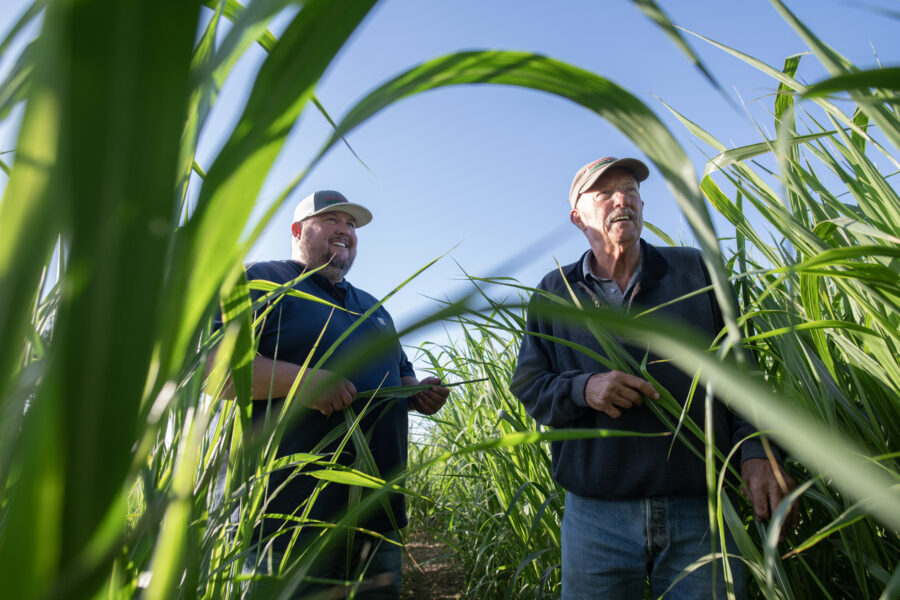
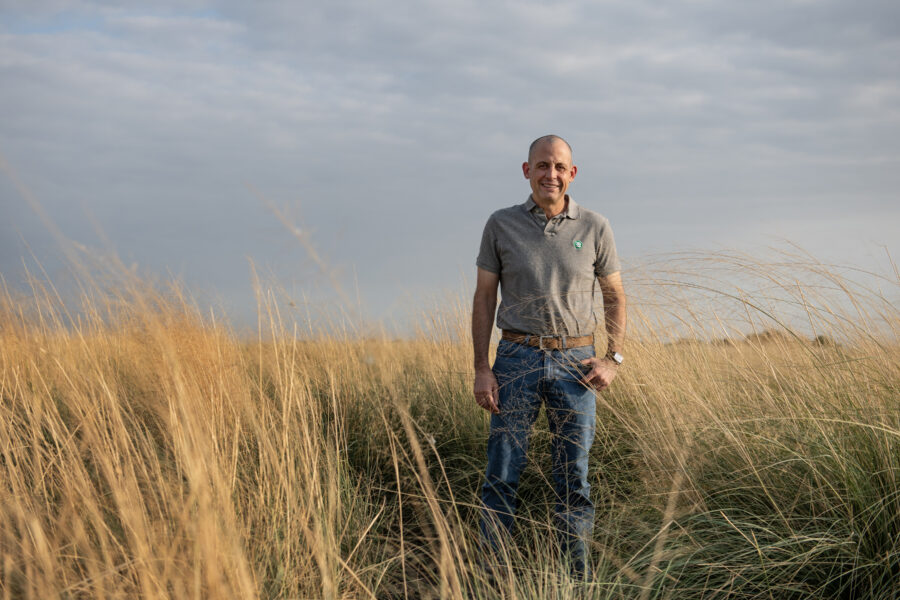
Award Archive
Visit Sustainable Conservation’s Leopold Conservation Award archive to learn about previous award winners!
About the Award
Sand County Foundation created the Leopold Conservation Award to inspire American landowners by recognizing exceptional farmers, ranchers and foresters. The prestigious award, named in honor of renowned conservationist Aldo Leopold, is given in 27 states.
The Leopold Conservation Award in California is made possible thanks to the generous support of American Farmland Trust, California Farm Bureau Federation, Sand County Foundation The Harvey L. & Maud C. Sorensen Foundation, Farm Credit, The Nature Conservancy in California, McDonald’s, and California LCA recipient alumni.
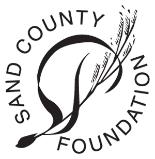 SAND COUNTY FOUNDATION
SAND COUNTY FOUNDATIONSand County Foundation inspires and enables a growing number of private landowners to ethically manage natural resources in their care, so future generations have clean and abundant water, healthy soil to support agriculture and forestry, plentiful habitat for wildlife and opportunities for outdoor recreation.
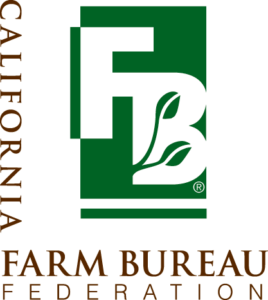 CALIFORNIA FARM BUREAU FEDERATION
CALIFORNIA FARM BUREAU FEDERATIONThe California Farm Bureau Federation works to protect family farms and ranches on behalf of nearly 40,000 members statewide and as part of a nationwide network of more than 5.5 million Farm Bureau members.
 SUSTAINABLE CONSERVATION
SUSTAINABLE CONSERVATIONSustainable Conservation helps California thrive by uniting people to solve the toughest challenges facing the state’s land, air and water. Since 1993, it has brought together business, landowners and government to steward the resources that all Californians depend on in ways that make economic sense. Sustainable Conservation believes common ground is California’s most important resources.
 AMERICAN FARMLAND TRUST
AMERICAN FARMLAND TRUSTAmerican Farmland Trust’s mission is to save the land that sustains us by protecting farmland, promoting sound farming practices, and keeping farmers on the land. Since 1980, AFT has pursued this mission at both the national and regional state levels.
